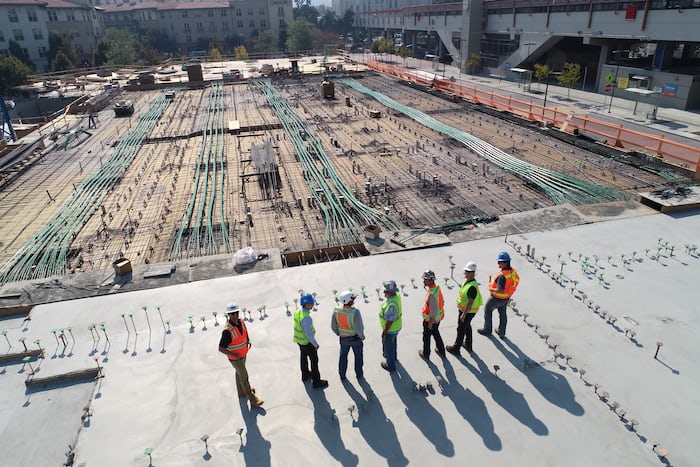Construction projects, whether they involve towering skyscrapers, modern residential complexes, or intricate infrastructure, are colossal endeavors that require meticulous planning, precise execution, and effective management. At the heart of every successful construction venture lies an efficient construction project management system, which serves as the backbone, ensuring seamless coordination of resources, schedules, and tasks. In this article, we delve into the intricacies of construction project management, exploring its significance, key elements, challenges, and the innovative approaches that are shaping the industry.
Significance of Construction Project Management:
Construction project management is a specialized discipline that focuses on the planning, coordination, and control of a project from inception to completion. Its primary goal is to meet a client’s requirements while keeping the project within budget and on schedule. Efficient project management is essential for several reasons. Firstly, it optimizes resource utilization, ensuring that materials, labor, and equipment are utilized efficiently, minimizing wastage and costs. Secondly, it enhances communication and collaboration among diverse project stakeholders, including architects, engineers, contractors, and clients. Thirdly, it mitigates risks by identifying potential issues early on and implementing strategies to address them. Ultimately, construction project management is pivotal in delivering high-quality, cost-effective, and timely construction projects.
Key Elements of Construction Project Management:
Construction project management involves a myriad of elements that demand attention to detail and strategic planning. One of the fundamental aspects is project planning, which encompasses defining project goals, creating work breakdown structures, and establishing realistic timelines and milestones. Budgeting and cost estimation are equally crucial, involving accurate financial forecasting, cost control mechanisms, and budget monitoring. Resource management, which includes labor, materials, and equipment allocation, is vital for optimizing productivity and minimizing downtime. Additionally, risk management, quality control, and effective communication are essential elements that ensure the smooth progression of the project.
Challenges in Construction Project Management:
While construction project management offers a structured approach to project execution, it is not without challenges. One of the significant hurdles is managing unforeseen risks, such as weather-related delays, regulatory changes, or unexpected site conditions. These uncertainties can impact project timelines and budgets, requiring swift and strategic decision-making. Moreover, coordinating diverse teams and stakeholders, each with their unique expertise and perspectives, demands strong leadership and communication skills. Tight budgets and stringent deadlines also pose challenges, necessitating innovative solutions and efficient resource allocation to meet project objectives without compromising quality.
Innovative Approaches Shaping the Industry:
In recent years, technological advancements have revolutionized construction project management. Building Information Modeling (BIM) is a powerful tool that enables 3D visualization of projects, facilitating collaborative planning and design. Project management software and cloud-based collaboration platforms streamline communication and document sharing among project stakeholders, enhancing efficiency and transparency. Moreover, the integration of drones and sensors on construction sites provides real-time data, allowing for better monitoring of progress and early detection of issues. Augmented reality (AR) and virtual reality (VR) technologies are also being leveraged for immersive project visualization and virtual walkthroughs, enabling stakeholders to experience the project before its physical completion.
In conclusion, construction project management is the linchpin that holds together the intricate threads of construction projects. Its significance in ensuring successful project outcomes, optimizing resources, and overcoming challenges cannot be overstated. As the industry continues to evolve, embracing innovative technologies and methodologies, the future of construction project management promises even greater efficiency, sustainability, and excellence in building the world’s architectural wonders. Through meticulous planning, effective communication, and the strategic application of cutting-edge tools, construction project management continues to shape the skyline of our cities and bring to life the dreams of architects, builders, and clients alike.





